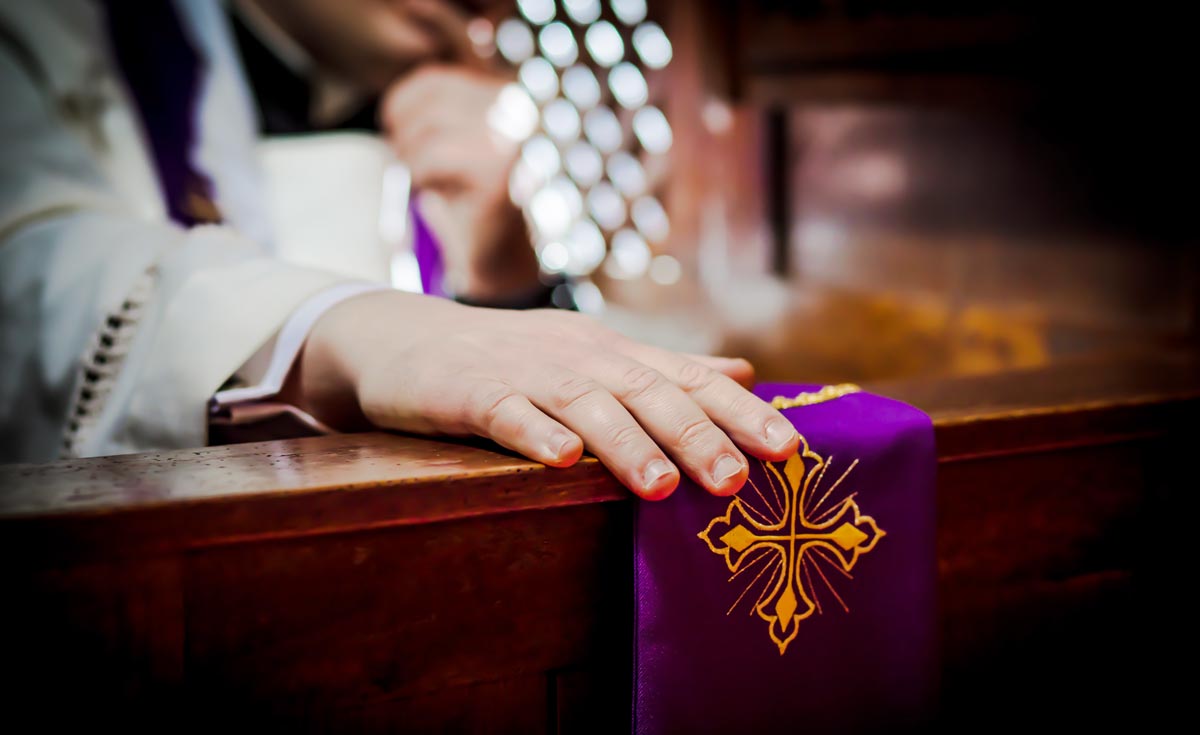
The Sacrament of Reconciliation: The way to a deeper union with Christ
“Grade 2 is going to be a lot of fun”, said my daughter excitedly after her first day at school. She not only had her best friend in her class but she also had a teacher whom she liked immensely. Most of all, she was eager to receive her first communion at the end of Grade 2 – for she would be able to receive Jesus just like the rest of her family.
While she prepared for the Sacraments of Reconciliation and Eucharist at her Catholic school, she also gained an understanding about them at home through books, stories and conversation. I recall trying to explain to my children the significance of the Sacrament of Reconciliation with an analogy that they could understand. “Imagine that we have a special guest coming to our house, this weekend! How would we prepare for this?” I asked. Being conversant with the preparations for an important occasion, they chimed in, “We dust, sweep, mop, scrub, shine the house, and cook a special meal…” “And ….. clean our rooms,” added my son, before I could remind them about it!
Now that I had their attention, I explained to them that we had to prepare ourselves in the same manner before we received Lord Jesus in the Eucharist. I added, “Just as we clean the house, it is important to clean ourselves – our hearts and our souls, before Jesus, the most special guest of all, makes His way into our dwelling. This is why we receive the Sacrament of Reconciliation before we receive the Eucharist.”
Yet, for most of us, although we may clean our houses regularly, we find it difficult to clean our souls and purge it of its cobwebs. Busy schedules, busier lifestyles and, sometimes, sheer disinclination make us lackadaisical in availing of this healing sacrament.
In the gospel of St. Matthew (15: 18-20), our Lord tells Peter, “Indeed it is from the heart that evil desires come.” Past hurts, guilt, shameful deeds and thoughts among other malaises of the heart can weigh us down and rob us of the joy that emanates from a light heart. As Christians, though, we are fortunate to be blessed with a channel that helps us release the woes of our encumbered hearts – the Sacrament of Reconciliation or Confession.
However, even I was not aware of the immense benefits of ‘releasing the miseries of my heart’ until a few years ago. I was led to Christianity by our Blessed Mother, more than a decade earlier. Following this, I would confess, occasionally, before Christmas and Easter. A few years ago, though, as I was searching for stories of saints that I could read to my children, I happened to come across the life of St. Padre Pio. He was noted for his intense love for Christ and his stigmata; also, he was an ardent advocate of confession and spent many hours a day in hearing confessions.
There are moments in one’s life when things change, all of a sudden – at the behest of a word, a story, a gesture or a smile – it’s a magical moment when the passion of a belief engulfs the coldness of reason. It was one of those instances for me, and I resolved to avail of the Sacrament of Reconciliation, more regularly.
It was also around that time that I chanced upon the First Friday Devotion to the Sacred Heart of Jesus, a remarkable way of expressing our love for our Saviour. This devotion made it possible for me to confess, every month, as there was confession after the First Friday mass. As time passed by, I felt that an interval of a month was too long to let my soul languish, and I resolved to receive this sacrament more often. This wasn’t easy as I faced many obstacles: physical, mental and spiritual.
Most of all, I found it difficult to pour out my iniquities to the priest – to make my private shame public, in a sense. Often, I would think, “Why can’t I confess to God directly?” Father Robert Barron, the prolific founder of the Word on Fire Ministries, explains this predicament that most of us face eloquently. He says, “We are not angels and don’t exist in pure spirit. If we did, we could have that direct spiritual contact with God. But we, humans, are embodied.” Further, he adds, “In the gospels, Christ forgave in a very human way – with His hands, with His voice and His personal presence. We need that real physical encounter with Christ in the mediation of a priest.” According to him, we feel the power of Christ’s words through the voice of the priest that mediates forgiveness in the Sacrament of Reconciliation.
So, what did I gain by going for confession, so often? A sensitive, delicate conscience! This may be a good thing for some and undesirable for some. After all, who wants a conscience that will be pricked by the thorns of righteousness every time you say a harmless social lie or a funny yet slandering remark about somebody, or a pang of remorse when you think badly of someone? Life is no fun that way, many may say.
Yet what I lose is nothing compared to the gifts that I receive from this sacrament – the incomparable graces of the Holy Spirit. I am more conscious of every venial sin that I commit – for after all, venial sins can lead one to a grave sin. Also, every time I receive this sacrament, I experience peace and with a lighter self, I am able to participate with heart, body, and mind in the Eucharist.
Another area where I have seen a remarkable difference is my prayer life. I am able to pray with a more loving heart and a less distracted mind. I realize that prayer is not an obligation to fulfill or a chore to be carried out, but a vital connection that puts me in touch with God – like a phone call that I make to my best friend. It needs to be uplifting, but most of all, it needs to be done with love. “Teach me to pray” – I beseech the Holy Spirit, earnestly and constantly. I know that my prayers are being answered as I am being taught to pray, particularly the Rosary – a prayer that I love yet one that is a challenge to my restless mind. Even though I have not yet reached the state where I can claim complete concentration, at least I am at a stage where I love to pray the Rosary – it is a retreat of sorts, a feeling of coming home and resting as I truly contemplate the mysteries and feel Christ in the midst of it, even if it is for a fleeting moment at times.
I marvel at this intricate connection – prayer replenishes me with a more intense desire to love God and to reconcile with Him, thus, leading me to confess. The Sacrament of Reconciliation, in turn, cleanses, heals and inflames me with a love for God, whom I seek in the Eucharist and through prayer.
However, akin to the ‘the seed that fell among the thorns, which came up and choked it’ (Mark: 4 – 7, 18-20), I know that I can get easily waylaid by the soft stirrings of the world. Like the times that I feel a tug of torpor on a lazy Saturday afternoon when I have to go for confession; or when I have to extricate my children from their ‘weekend state of mind’ to get ready for confession. Yet, we manage to receive this sacrament at least once a month. This, I realize, is made possible entirely by the grace and mercy of God, for without that, my intent to go for confession will just remain another thought, and may never translate into action.
As I reflect upon my path along this journey, I know that the precious Sacrament of Reconciliation has helped me achieve a deeper union with Christ in the Eucharist. For this, I can’t thank our Lord enough, and our Blessed Mother, who has always been my guide, anchor and strength along every step of the way.
Mitha DeCunha
Mitha DeCunha is a grateful wife and a mother of two living in Milton, Ontario. Apart from this, she works as an early childhood educator in a Catholic school board. Motherhood, she believes, is a vocation, a blessing and a journey. In this journey, she draws inspiration from Mother Mary. Mitha is present to her children fully and lovingly in their joy and sorrow, suffering and success.



